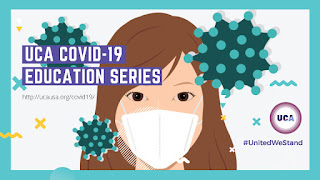55. What should you do if you may have been exposed to the virus or infected?
Q: What should I do if I may have been exposed to the virus or infected?
💁Tracy: First of all, within 14 days of your exposure, please practice self quarantine, minimize your interaction with others. Practice hygiene including wearing a mask, wash hands frequently, clean and disinfect high-touch surfaces, etc. The most likely time window for COVID-19 infection is about 5-7 days if you indeed get infected. Symptoms may start to show up during or after this time window.
Secondly, continue to monitor your body condition closely, and establish a baseline before you notice any symptoms. Body baseline include:
- Body temperature (by using a Basal Body Thermometer, for example);
- SPO2 (blood oxygen level, by using a Finger Pulse Oximeter, for example);
- Resting breathing rate, resting heart rate, resting blood pressure, etc.
- If you have other medical conditions such as diabetes, cardiovascular diseases, it is important you continue to monitor these conditions and note your baseline level before any COVID-related symptoms develop.
More importantly, try to keep yourself healthy and build your immunity, including,
- Taking adequate rest and maintain high quality sleep; If you have tight work schedule, take very short naps during break can be helpful;
- Practice stress reduction and pick effective methods that work for you; stress can cause a great harm to immunity;
- Eat healthy, especially fresh fruits and vegetables; Avoid all junk food and soft drink;
- Take plenty of liquid on daily basis, such as water with fresh lemon;
- Take needed supplements, supportive nutrition or trusted herbs, including Vitamin C and D, etc; Chewable Vitamin C can be helpful to boost immunity by the throat area;
- Proper exercises, spend some time in sunlight, in nature and outdoor environment; Exercise such as Yoga and other methods which involve stretching and deep breathing can be helpful;
- Maintain a positive outlook and optimism; mental well-being is an important element enhancing immunity;
COVID symptoms normally start off just like a regular flu. Please pay attention if you notice fatigue, itchy throat, muscle pain, headache, disturbed digestive system or sensory functions, or just in general, any discomfort. Continue to monitor your body conditions including those listed above, especially if you have other underlying health conditions.
If you start to experience COVID-like symptoms such as cough, fever, and others, use CDC's Self Checker to see the likelyhood you are having a COVID infection, arrange for a test, and talk to your doctors.
If you start to experience COVID-like symptoms such as cough, fever, and others, use CDC's Self Checker to see the likelyhood you are having a COVID infection, arrange for a test, and talk to your doctors.
At the same time, practice what you normally do to alleviate flu, such as those items listed above, follow your doctor's suggestions, use trusted supplements or add nutrition to help you build immunity and help you recover.
If your test shows up positive, please follow medical guidelines and read our chapter of "What happen if you are sick".
| Simple facts about COVID-19 Younger and healthy adults without existing health conditions tend to do better and have milder symptoms after exposure to COVID. People who have pre-existing conditions especially cardiopulmonary diseases, metabolic disorders, cancer, immunity disorders, etc, need to pay close attention to their body conditions, and minimize their risk of exposure to the virus. |
References
[1] WHO: Home care for patients with suspected novel coronavirus (COVID-19) infection presenting with mild symptoms and management of contacts.[3] CDC's guideline on COVID testing: https://www.cdc.gov/coronavirus/2019-ncov/testing/index.html
Writing & Scientific Editing: Helen Shih



